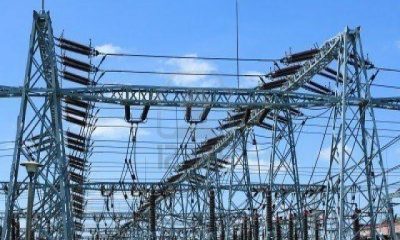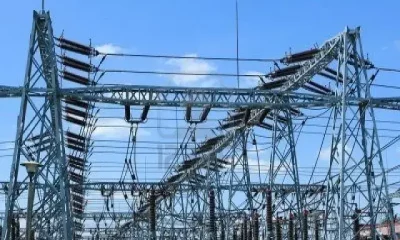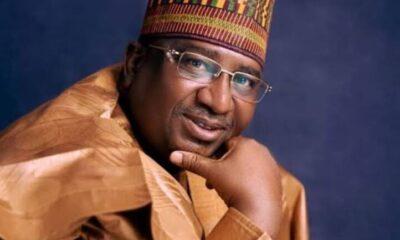News
Improved Electricity: Lagos Targets 20hrs Power Supply Daily To Residents
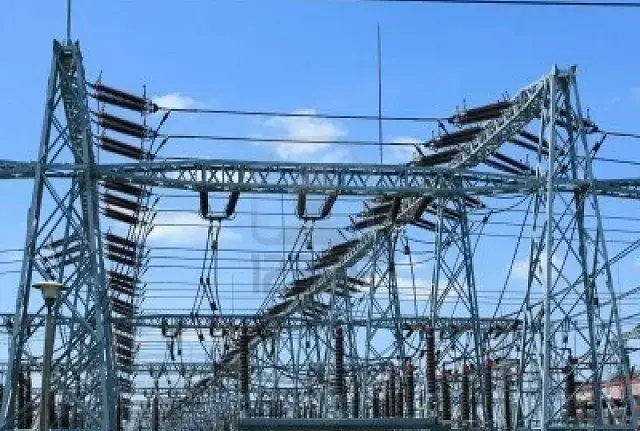
The Lagos State Government has disclosed plans to improve power supply up to 20 hours daily in communities to further stimulate investments and boost standard of living, among others.
Recall that President Bola Tinubu, recently signed the passed Electricity Act into law, marking a significant update to the 2005 Electricity and Power Sector Reform Act in Nigeria.
Originally enacted in July 2022 during former President Muhammadu Buhari’s administration, the new legislation aims to stimulate private sector investments in the country’s power sector and break the monopoly in electricity generation, transmission, and distribution on a national level.
Permanent Secretary, state Ministry of Energy and Mineral Resources, Ms. Sholabomi Shasore, disclosed this at the weekend at an organised stakeholders’ engagement in Alimosho Local Government Area in the state as part of continued efforts to ensure adequate power supply to Lagos residents through various interventions.
Shasore, said the meeting was organised in line with the inclusive policy of the administration of Governor Babajide Sanwo-Olu, who believes that the contributions of every resident in the state are essential to achieve the “Greater Lagos vision.”
According to her, the Light Up Lagos Community Electrification Programme is an initiative of the present administration aimed at unlocking electricity distribution, transmission and metering infrastructure to deliver reliable power supply to high-impact, high-population, low-income communities in Lagos.
Shasore stressed that the pilot implementation of the Power Infrastructure upgrade at target communities is nearing completion at Alimosho, Orelope and Okunola; Agege, Oko-Oba and Abattoir, as well as in Ajah, Eleko, Magbon and Ibeju Lekki.
“This initiative was borne out of the desire of the State Government to improve the standard of living of Lagos residents, contribute to their economic activities; increase in productivity; job creation and ultimately boost the businesses of small and medium scale enterprises including artisans who rely primarily on electricity for the survival of their businesses, as well improve the overall wellbeing of all residents in the state,” she added.
While informing that the expected impact is to improve power supply (up to 20 hours) to target communities and create a catalyst for further investment across low-income communities in Lagos State, Shasore stated that a total number of 8,613 Service addresses connected to the feeders being installed will benefit from the improved supply covering almost 10,000 households.
According to her, “While the State Government had intervened in the functionality of electricity supply to various communities within Alimosho as a whole, the Sanwo-Olu administration is now taking it a step further by engaging with residents who are the critical stakeholders in this power intervention.
“Your participation is required to ensure that you reap the benefits of this Power Infrastructure upgrade.”
“With this engagement, the state government seeks to ensure that you know your role in realising the goal of this intervention and look out and protect the infrastructure as your own. I implore the leadership of relevant CDAs, who are direct beneficiaries of this power project, to take ownership of this electrification infrastructure and protect it against vandals,” she stated.
https://www.fellowpress.com/wp-admin/admin.php?page=quick-adsense
Shashore stressed the importance of prompt payment of electricity bills, protection against energy theft, discouragement of meter bypassing and other illegal acts that might jeopardise the overall intention of the state government to improve power supply to Alimosho and its environs.
She explained that the developments in the power sector with the recent amendment of the Power provision in the Nigerian Constitution of 1999 are indicative that great things are to come with regard to power and Lagos State is at the forefront.
Shasore submitted that the electricity infrastructure that has been put in place in the communities would guarantee reliable power supply as incidents of power failure, faulty transformers, cables, high and low electric current and inadequate electricity poles among others have been fully addressed.
“It is worthy to note that Alimosho Local Government and its environs have always been identified as an integral part of the Greater Lagos Rising project under the administration of Governor Sanwo-Olu and as such it is set to enjoy more dividends of democracy and good governance going forward,” she said.
Headline
Prince Harry visits sick Nigerian soldiers in Kaduna

Prince Harry and his team visited the 44 Nigerian Army Reference Hospital in Kaduna to interact with wounded soldiers who are receiving treatment.
The Duke of Sussex is in Nigeria with his wife to champion the Invictus Games, which Harry founded to aid the rehabilitation of wounded and sick servicemembers and veterans.
Nigeria joined the Invictus Community of Nations in 2022 becoming the first African country to join.
Prince Harry’s visit to Kaduna came 68 years after his late grandmother Queen Elizabeth II visited the state during the time of the late Premier of Northern Region Sir Ahmadu Bello.




News
Senate approves death penalty for drug traffickers
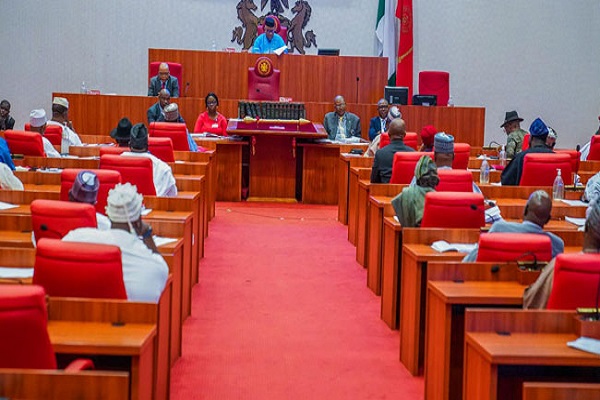
Senate on Thursday, May 9, approved the death penalty for those convicted on the charge of drug trafficking in the country.
The punishment prescribed in the extant NDLEA Act is a maximum sentence of life imprisonment.
The resolution of the Senate followed its consideration of a report of the Committees on Judiciary, Human Rights and Legal Matters and Drugs and Narcotics, National Drug Law Enforcement Agency (NDLEA) Act (Amendment) Bill, 2024.
The Chairman of the Committee on Judiciary, Human Rights & Legal Matters presented the report during plenary, Senator Mohammed Monguno (APC-Borno North).
The bill, which passed its third reading, aims to update the list of dangerous drugs, strengthen the operations of the NDLEA, review penalties, and empower the establishment of laboratories.
Section 11 of the current act prescribes that “any person who, without lawful authority; imports, manufactures, produces, processes, plants or grows the drugs popularly known as cocaine, LSD, heroin or any other similar drugs shall be guilty of an offence and liable on conviction to be sentenced to imprisonment for life” was amended to reflect a stiffer penalty of death.
Although the report did not recommend a death penalty for the offence, during consideration, Senator Ali Ndume moved that the life sentence should be upgraded to the death penalty.
During a clause-by-clause consideration of the Bill, Deputy Senate President Barau Jibrin, who presided over the session, put the amendment on the death penalty to a voice vote and ruled that the “ayes” had it.
But Senator Adams Oshiomhole objected to the ruling, saying that the “nays” had it.
He argued that matters of life and death should not be treated hurriedly, but Barau said it was too late, as he failed to call for division immediately after his ruling.
The bill was subsequently read for the third time and passed by the Senate.
-

 Headline6 days ago
Headline6 days agoPrince Harry visits sick Nigerian soldiers in Kaduna
-

 Entertainment6 days ago
Entertainment6 days agoAMVCA Cultural Day: BBNaija’s Neo, Venita win Best Dressed Male, Female
-

 Metro6 days ago
Metro6 days agoEx-Sports Minister laments after hospital neglected him for hours over N80000 deposit
-

 Headline6 days ago
Headline6 days agoEFCC bars dollar transactions, orders embassies to charge in naira



